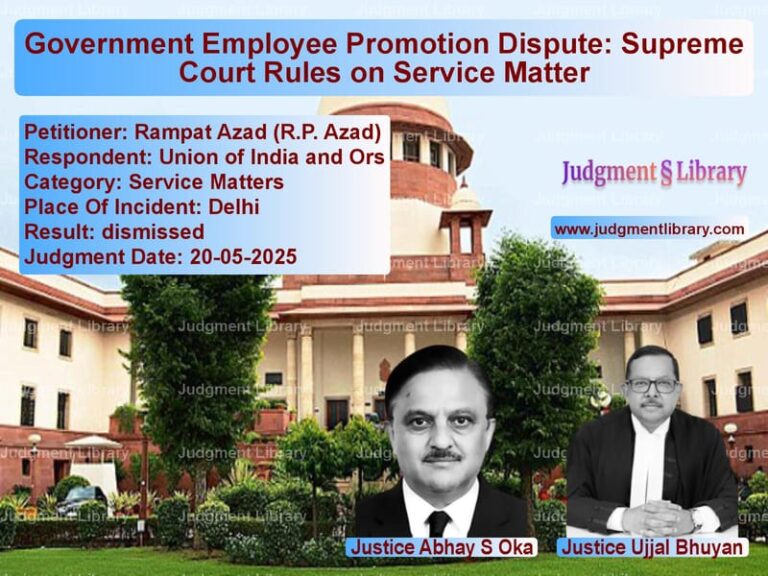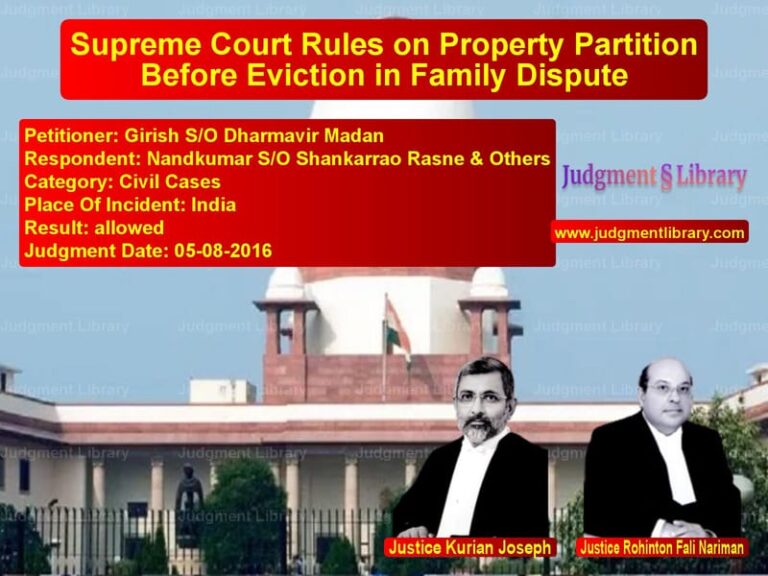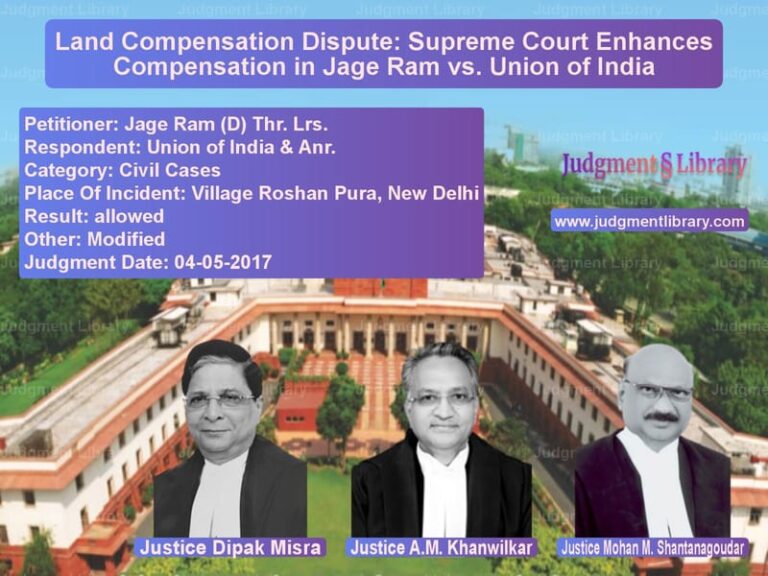Supreme Court Upholds Divorce and Awards ₹10 Lakh Alimony in Matrimonial Dispute
The Supreme Court of India recently delivered a significant judgment in the case of Sau. Jiya v. Kuldeep, addressing a long-standing matrimonial dispute. The case, which originated from the Family Court in Nagpur, involved allegations of cruelty and desertion, ultimately leading to the dissolution of marriage. The apex court upheld the divorce granted by the Family Court and affirmed by the High Court, while also awarding a one-time settlement of ₹10 lakh as permanent alimony to the appellant-wife.
Background of the Case
The marriage between the appellant-wife and the respondent-husband was solemnized on June 27, 2012. However, marital discord arose soon after. The respondent filed a divorce petition under Section 13 of the Hindu Marriage Act, 1955, alleging cruelty and desertion by the appellant. He claimed that she refused to cohabit with him in a joint family and falsely accused him of fraud and harassment.
The appellant, in her defense, contended that she was subjected to verbal and physical abuse by her husband. She had earlier filed a petition seeking annulment of the marriage on grounds of fraud, which was dismissed by the Family Court. Following failed reconciliation attempts, the Family Court granted the divorce on grounds of mental cruelty.
Legal Proceedings and High Court Ruling
- The Family Court ruled in favor of the husband, citing the wife’s false accusations and unwillingness to cohabit as evidence of mental cruelty.
- The appellant challenged the decision in the Bombay High Court, which dismissed her appeal, upholding the divorce decree.
- The High Court observed that making unfounded allegations about the husband’s character and pressuring him to leave his family amounted to cruelty.
Supreme Court’s Consideration
- The Supreme Court noted that the parties had lived together for only two months, and the husband had remarried in 2019.
- Recognizing the irretrievable breakdown of marriage, the court refrained from interfering with the divorce decree.
- The focus shifted to determining a fair one-time settlement amount as permanent alimony.
Arguments of the Appellant (Wife)
- The appellant claimed that the respondent was financially well-off, earning over ₹1,30,000 per month from multiple sources, including a gym and rental income.
- She contended that ₹3,000 per month awarded under Section 125 of Cr.P.C. was insufficient for her sustenance.
- She sought a higher alimony amount, citing the husband’s refusal to provide financial support despite his stable income.
Arguments of the Respondent (Husband)
- The husband maintained that he worked as a contractual electrician with an income of ₹16,612 per month.
- He claimed to have financial obligations towards his second wife and other dependents.
- He disputed the appellant’s claims about his financial status and opposed a higher settlement amount.
Supreme Court’s Observations
- “A bare perusal of the affidavits submitted by both parties makes it evident that the husband has not been forthright in disclosing his income and assets.”
- The court emphasized that “procedural technicalities should not be used to escape financial liability towards a spouse.”
- It referred to the precedent in Rajnesh v. Neha, outlining factors for determining maintenance, including financial status, living standards, and employment potential.
- The court concluded that awarding ₹10 lakh as a one-time settlement would balance the interests of both parties.
Final Judgment
- The Supreme Court upheld the divorce granted by the lower courts.
- A one-time permanent alimony of ₹10 lakh was awarded to the appellant-wife, covering all pending and future claims.
- The respondent was directed to pay the amount within three months.
Conclusion
This judgment reinforces the principle that financial obligations do not end with divorce, especially when one spouse is financially dependent. The Supreme Court’s ruling ensures that the appellant-wife receives fair compensation, setting a precedent for equitable relief in matrimonial disputes.
Petitioner Name: Sau. Jiya.Respondent Name: Kuldeep.Judgment By: Justice Vikram Nath, Justice Prasanna B. Varale.Place Of Incident: Nagpur.Judgment Date: 31-01-2025.
Don’t miss out on the full details! Download the complete judgment in PDF format below and gain valuable insights instantly!
Download Judgment: sau.-jiya-vs-kuldeep-supreme-court-of-india-judgment-dated-31-01-2025.pdf
Directly Download Judgment: Directly download this Judgment
See all petitions in Alimony and Maintenance
See all petitions in Property Division in Divorce Cases
See all petitions in Judgment by Vikram Nath
See all petitions in Judgment by Prasanna Bhalachandra Varale
See all petitions in partially allowed
See all petitions in Modified
See all petitions in supreme court of India judgments January 2025
See all petitions in 2025 judgments
See all posts in Divorce Cases Category
See all allowed petitions in Divorce Cases Category
See all Dismissed petitions in Divorce Cases Category
See all partially allowed petitions in Divorce Cases Category







